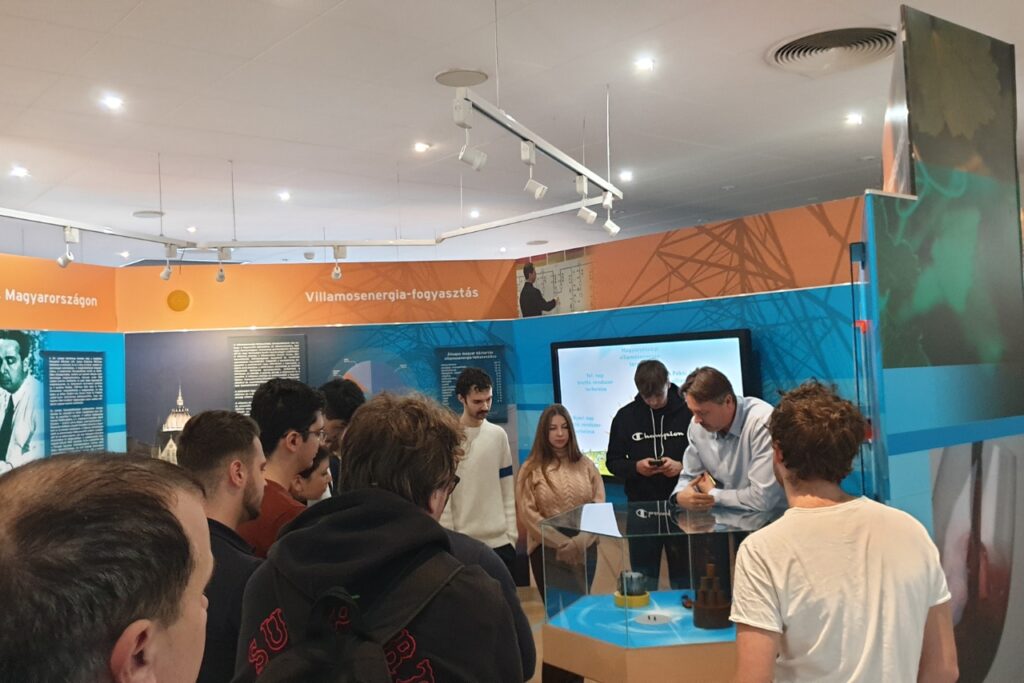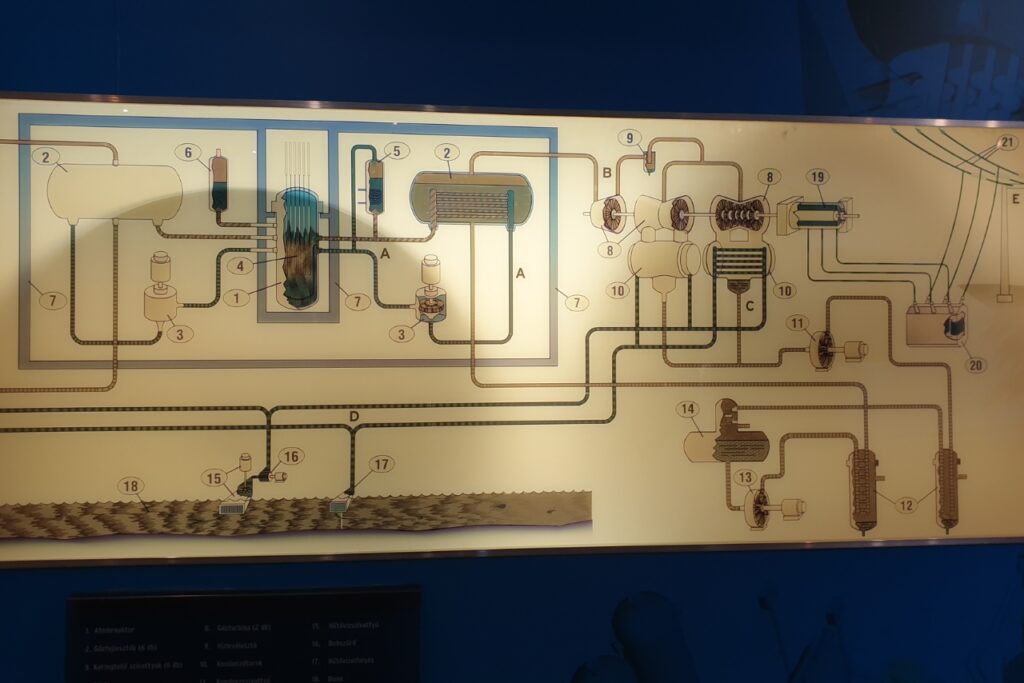Trip for third-year International Relations BA students to the Paks nuclear power plant
8 November 2024

Did you know that 49% of Hungary’s electricity consumption comes from the Paks nuclear power plant? How environmentally friendly is nuclear energy? How is electricity produced? What happens to the energy produced? These and similar questions were answered to those who came with us to the Paks nuclear power plant.
Third-year international students from both English and Hungarian language programmes took part in the event. The university hired a bus for us, so we had a comfortable ride from Building C to the entrance of the power plant. There, a tour guide was waiting for us and showed us around the plant.
The tour consisted of three parts. First, we visited an exhibition where the guide talked about all the topics related to the civil use of nuclear energy. We saw real-time information on the electricity production of all the world’s nuclear power plants at any given moment, we compared the radioactivity measured in medicine, in nature and in the plant, learned how nuclear fission takes place, what types of power plants exist, saw where the plant gets its cooling water from and what happens to the water after use.

In the second and third part of the visit, after a strict safety check, we entered the power plant. Two sections are open to visitors. One is the turbine hall, the other is the reactor building. In the turbine hall, the steam produced by the steam generators connected to the reactor drives turbines that produce electricity and feed this electricity into the national grid.
The other part was the reactor building, as we saw the tops of two hermetically sealed reactors and a detailed explanation of how the energy generated by the fission of the atomic nuclei is extracted.
An interesting aspect of the visit was that our group was joined by a team of observers from the International Atomic Energy Agency, who monitor the safe operation of power plants around the world.
And why was all this beneficial for us students of International Relationss? For one thing, energy security determines Hungary’s (and every country’s) foreign policy. It was good to understand the role of the Paks nuclear power plant in the Hungarian energy mix. On the other hand, in the world political forums on global warming and environmental protection, the Hungarian position is also determined by our capabilities at Paks. Thirdly, nuclear energy is not just a domestic issue for any state. The international community, through the International Atomic Energy Agency, monitors the peaceful use of nuclear energy, making power generation an integral part of international life.
What nuclear energy is, its advantages and disadvantages, was something we experienced first hand.